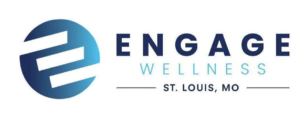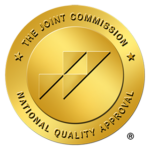Bipolar Disorder and Addiction Treatment in St. Louis | Engage Wellness
Bipolar disorder, formerly known as manic depression, is a mental health disorder that involves significant shifts in mood, energy, activity levels, and concentration. For people with bipolar disorder, these symptoms can make it difficult to function in day-to-day life.
What Is Bipolar Disorder?
Bipolar disorder is a mental health condition characterized by extreme shifts in mood, energy, and activity levels, including both manic (elevated mood) and depressive (low mood) periods.[1] These mood swings can be disruptive and impact daily life, work, and relationships.
There are three types of bipolar disorder with different mood intensity and duration:[2]
Bipolar I
This disorder involves at least one manic episode that lasts for 7 days or more, or is so severe that hospitalization may be necessary. A manic episode is defined as a distinct period of abnormally and persistently elevated, expansive, or irritable mood and abnormally and persistently increased goal-directed activity or energy that lasts for 7 days or more or requires hospitalization.
Manic episodes may involve:
The manic episode may be preceded by or followed by a hypomanic or major depressive episode. A hypomanic episode is a distinct period of elevated, expansive, or irritable mood and increased activity or energy that lasts 4 days in a row and is present most of the day, nearly every day.
A major depressive episode involves at least 5 of these symptoms within a 2-week period:
A depressed mood for most of the day, nearly every day
Bipolar II
Bipolar II disorder doesn’t include a manic episode but meets the criteria for a hypomanic episode or a current or past major depressive episode. Bipolar II is generally thought to be more severe than bipolar I because of its severe instability of moods that can impact work and social functioning.
Cyclothymic Disorder
Cyclothymic disorder involves periods of hypomanic and depressive symptoms that do not meet the criteria for hypomanic or major depressive episodes. The symptoms need to persist for at least 2 years, include hypomanic symptoms and depressive symptoms for at least half the time, and not be without symptoms for more than 2 months at a time.
Drug Addiction and Interaction with Bipolar Disorders
Bipolar disorder often co-occurs with other mental health disorders and conditions, such as anxiety disorders or substance use disorders (SUD). People with bipolar I have a 65% prevalence of lifetime substance use disorder and a 54% prevalence rate of lifetime alcohol use disorder.[3] Roughly 37% of people diagnosed with bipolar II have a substance use disorder. It’s possible to have an addiction with cyclothymic disorder as well.
Substance use disorder, the clinical term for addiction, is a chronic condition that involves complex interactions between brain circuits, genetics, environment, and life experiences. People with drug or alcohol addiction have a compulsion to engage in substance use, no matter the problems it causes to their health, relationships, or other areas of life.
Having a diagnosis for bipolar disorder and substance use disorder is known as co-occurring disorders or dual diagnosis. Co-occurring bipolar disorder and addiction may have worse treatment outcomes, more severe symptoms, and a heightened suicide risk.

Causes of Bipolar Disorder and Addiction
There’s a complex relationship between addiction and other mental health disorders. With bipolar and substance use disorder, there’s evidence that suggests a bidirectional relationship – meaning the presence of one disorder may worsen the other disorder. There are many possible reasons bipolar and addiction may occur together, including:[4,5]
Bipolar and Addiction Treatment in St. Louis
At Engage Wellness, we provide comprehensive care for dual diagnosis bipolar and addiction to address the complex challenges these conditions present. We rely on evidence-based approaches that address both conditions simultaneously and the interplay between them.
Each treatment plan is completely individualized. We offer different levels of care to provide the support you need, including intensive outpatient programs (IOP) for bipolar and addiction, and outpatient treatment. There are many therapies involved in dual diagnosis treatment, including:




